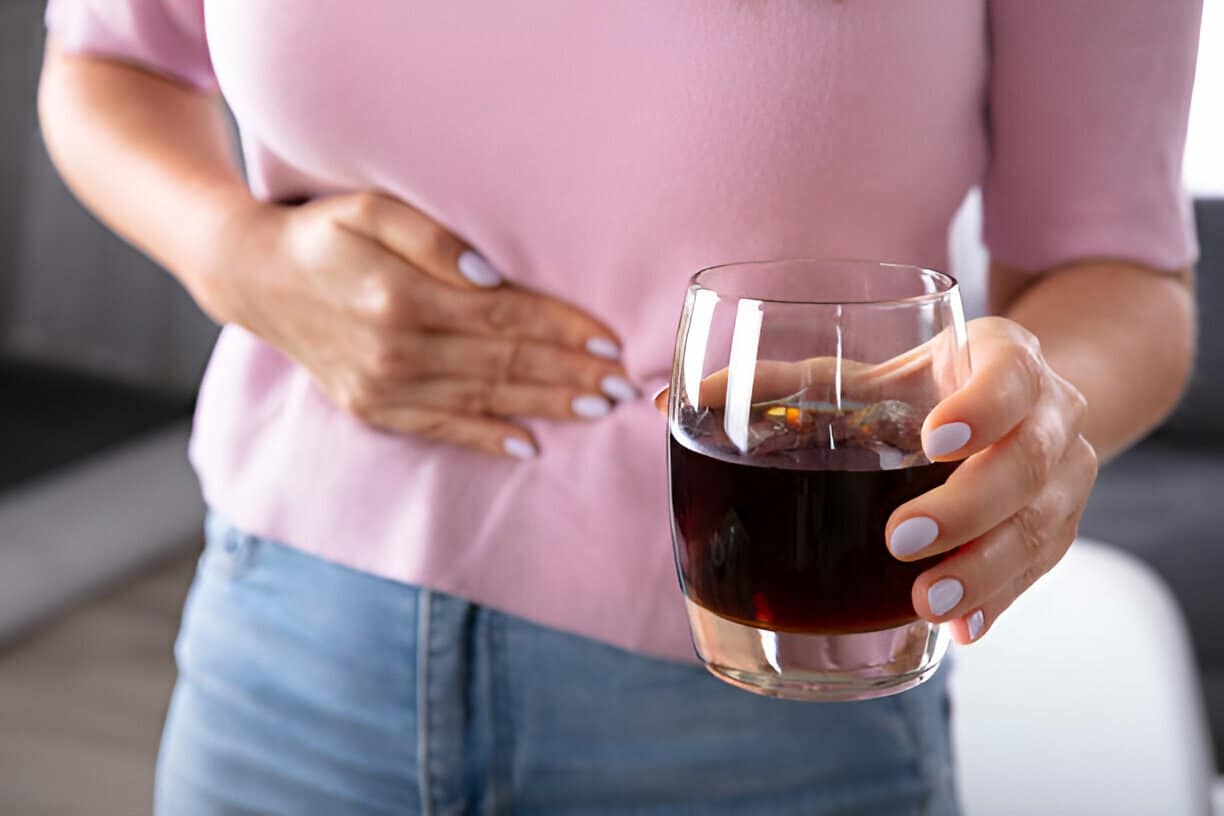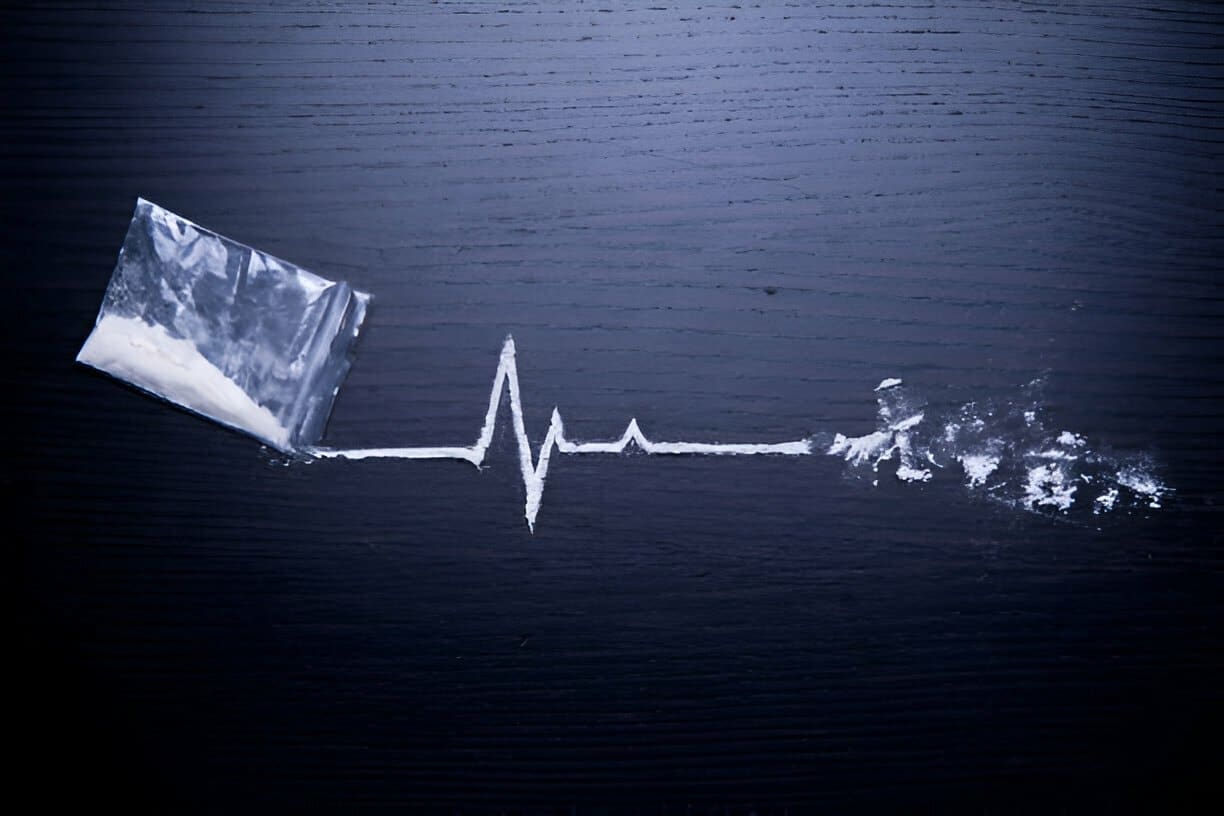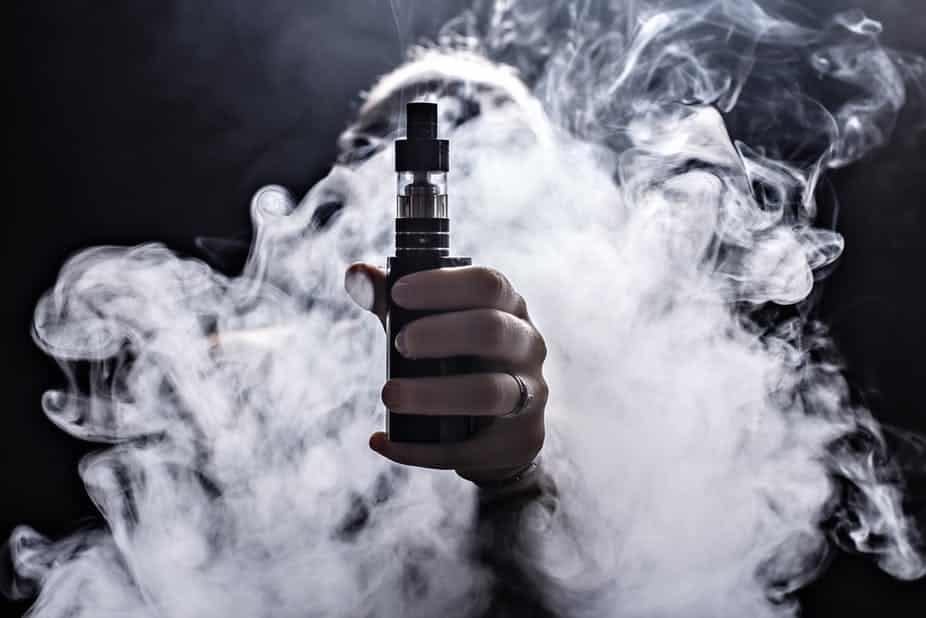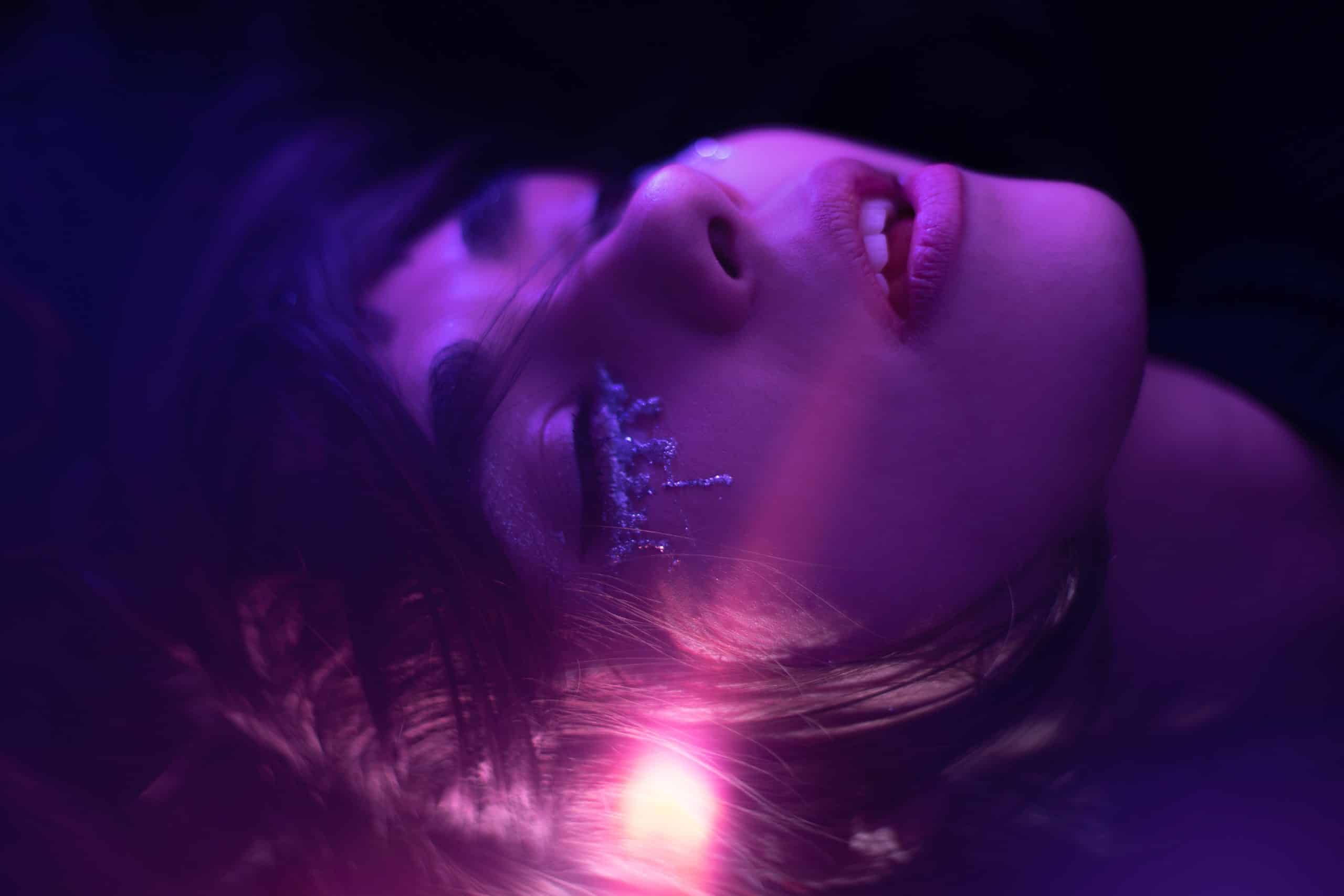Start exploring drug and alcohol rehabs today. Treatment providers are available to answer your questions.
The term “hallucinogen” describes a group of psychoactive substances that produce perceptual distortions or other alterations of the senses and/or thought processes. Some hallucinogenic drugs have been known for centuries; others have been discovered recently. The most commonly used hallucinogens include LSD, mescaline and psilocybin. Other well-known examples are DMT, 2C-T-7 -N- cyclohexan ecarboxamide and 5-MeO-DALT.
Natural hallucinogens are made with extracts of plants. These extracts are then used to create pills, liquids or powders. Although these substances are made from plants, there is no guarantee that they will actually make you feel high. Many people who take these products report feeling nothing at all.
Synthetic hallucinogens are manufactured using chemical compounds. They may or may not contain any plant material. Some synthetic hallucinogens are illegal because they are considered dangerous for human consumption. However, some people use them recreationally.
There are three main categories of hallucinogens: psychedelics, dissociatives and deliriants.
Psychedelic drugs alter consciousness by affecting brain function and sensory perception. Hallucinogens under this category are known to cause changes in cognition and perception of reality, together with a heightened state of consciousness. They include drugs like LSD, Psilocybin, PCP and Peyote.
Dissociative drugs induce amnesia and create an altered state of awareness without altering consciousness. They may also affect memory and cause confusion. They usually have a higher potential for causing addiction. Substances in this category include Ketamine and Nitrous Oxide.
Deliriants are another class of hallucinogens. The term was conceived in the early 1980s to distinguish these drugs from psychedelics and dissociatives, due to their primary effect of causing delirium, as opposed to the more lucid and less disturbed states generated by other types of hallucinogens. Examples of such substances include dextromethorphan, diphenhydramine and scopolamine.
All 3 types of hallucinogens can lead to feelings of euphoria and relaxation.
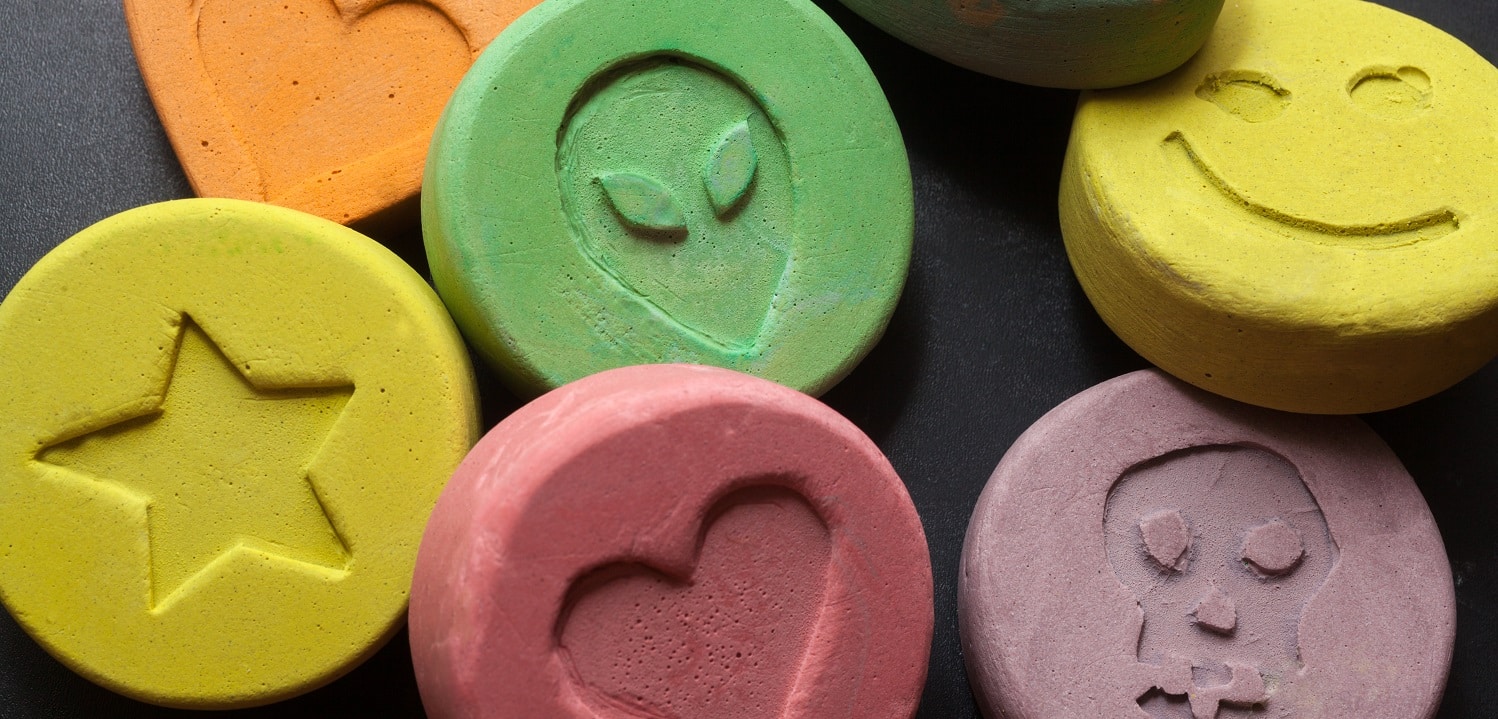
In the United Kingdom, almost all hallucinogens are controlled substances, with varying degrees of legislative control.
In this group, there is some diversity in the legal classification of the drugs. Both LSD and PCP are restricted substances classified as class A (Schedule 1).
Cannabis is officially listed as a Schedule 1 restricted substance (class C).
Ketamine is now classified as a class C substance under Part 3 of Schedule 2 of the Misuse of Drugs Act 1971 and Part 1 of Schedule 4 of the Misuse of Drugs Regulations (Northern Ireland) 2002, which came into effect in January 1, 2006.
Possession or distribution of any fungus containing psilocin or an ester of psilocin (“magic mushrooms”) has been prohibited since July 18, 2005. Under the Misuse of Drugs Act of 1971, they are classified as a class A (Schedule 1) drug. Only dried and prepared magic mushrooms were previously prohibited.
Most hallucinogens are ingested but may also be chewed and absorbed orally, administered sublingually, insufflated, smoked, or injected intramuscularly or intravenously.
All hallucinogens work by altering brain chemistry. Hallucinogens affect how the brain interprets incoming sensory information. In this way, they affect sensory perception, mood, memory, thinking and behaviour. Most hallucinogens also affect the body’s endocrine system, causing increased levels of certain hormones such as adrenaline and cortisol. It’s thought that hallucinogens can also interrupt communication between neurotransmitters in the brain and spinal cord.
When we take a hallucinogenic drug, our brains release dopamine, adrenaline and norepinephrine. These chemicals help us feel alert, energetic and focused. This makes us feel calm, relaxed, and happy. We may also experience feelings of euphoria and, in some cases, see colours or geometric shapes. Because of these exciting effects, the more we consume these drugs, the more we tend to crave them.
Hallucinogen Addiction is a serious problem that requires immediate attention. Call us on 0800 999 1083 to discuss treatment options.
Some of the classic hallucinogens include:
Ayahuasca, also known as hoasca, aya, and yage, is made from DMT-containing herbs and an Amazonian vine that inhibits DMT from being broken down normally in the digestive system. It’s typically drunk like tea.
Dimethyltryptamine(DMT), also known as Dimitri, is a natural substance present in various Amazonian plant species that can also be artificially produced. It usually comes in the form of a white, crystalline powder that can be vaporised or smoked through a pipe or bong.
D-lysergic acid diethylamide (LSD) is a manmade chemical made from ergot, a fungus that grows on certain grains. It is probably the most powerful hallucinogen available, producing hallucinations, changes in the way reality is perceived, and altered moods.
It comes in the form of a white powder or a clear liquid with no colour or odour. It can be taken as capsules, but it is more commonly taken as little squares of blotter paper or jelly that are placed on the tongue or swallowed to have a “trip.”
Methylenedioxymethamphetamine (MDMA) is a synthetic drug that is derived from amphetamine. It is also known as ecstasy or “molly.” It works by enhancing dopamine, serotonin, and norepinephrine activity in the brain. It acts as a hallucinogen and a stimulant, causing heightened sensory perceptions, reduced anxiety, and a sense of mental excitement.
A natural substance found as the main ingredient in the peyote cactus. Mescaline is found in disc-shaped “buttons” on the tops of spineless peyote cactus plants. To make an intoxicating drink, the buttons are dried and then chewed or soaked in liquid. Chemical synthesis can also be used to create mescaline.
A natural substance that is found in hallucinogenic mushrooms that contain psilocybin and psilocin. In large enough doses, psilocybin can produce effects very similar to the powerful hallucinogen LSD. “Shrooms” as they are sometimes called can be used either fresh or dried. They are normally eaten, mixed with food, or brewed like tea for drinking.
The active ingredient in marijuana is delta-9 tetrahydrocannabinol or THC, which acts on cannabinoid receptors found in brain regions that influence learning, memory, appetite, coordination, and pleasure.
THC is just one of more than 400 different active substances—and 60 different cannabinoid molecules—contained in marijuana. Marijuana, which is widely used as a recreational and medical drug, has been linked to paranoia, anxiety, and hallucinations, particularly in adolescents who use it frequently. Hallucinations including time distortion are a sign of marijuana abuse.
Dissociative drugs are a class of hallucinogens that affect the perception of sight and sound. In addition to causing these perceptual distortions, they also produce feelings of dissociation and detachment from the environment and/or the self.
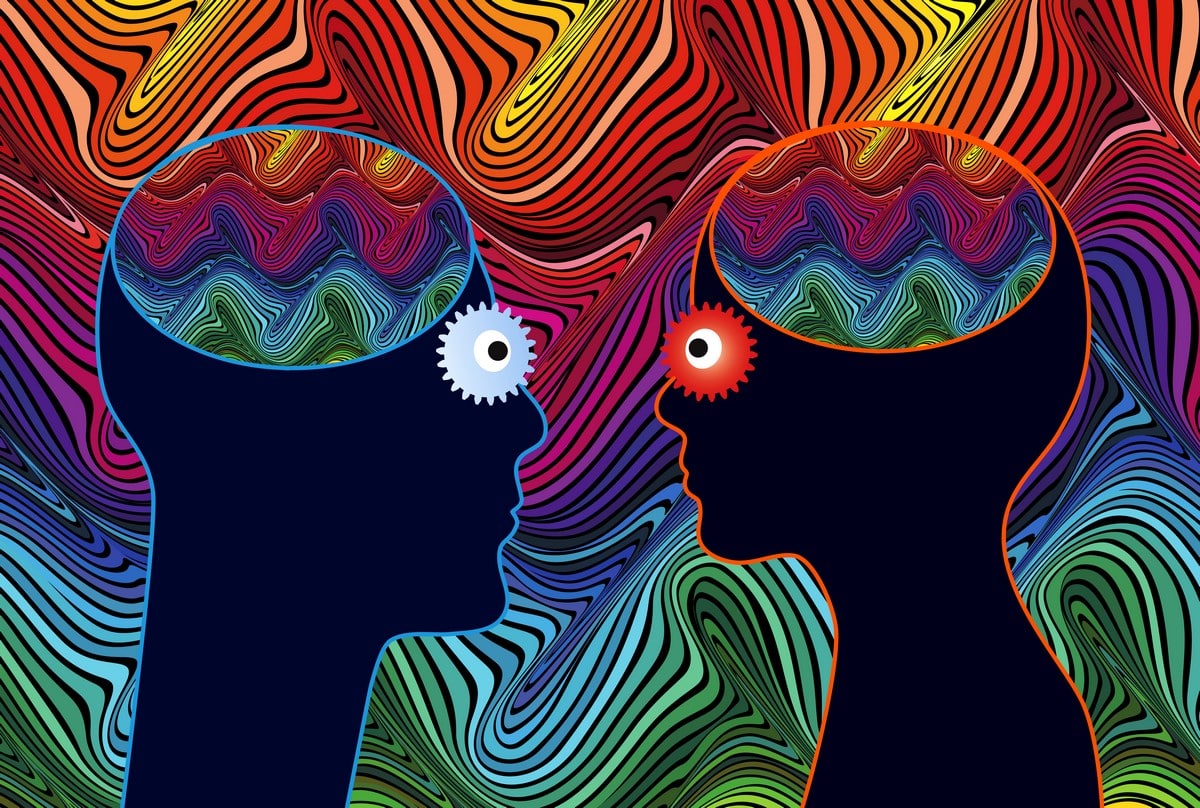
Dextromethorphan, also known as DXM or robo, is a cough suppressant and expectorant that is often included as an ingredient in over-the-counter cold medications. When taken in quantities greater than that suggested on the medication label, it might cause hallucinogenic symptoms such as perceptual distortions, sensations of euphoria, and motor control disruptions.
Ketamine, also known as K or Special K, is a type of dissociative drug that is used as an anaesthetic in humans and animals. When used recreationally, it often creates a deep dissociative state as well visual disturbances, disorientation, euphoria, and sedation.
PCP is a dangerous manmade substance that was originally developed as an anaesthetic but was discontinued for human use in 1965 due to side effects. It is now an illegal street drug sold as a white powder or in liquid form. It can be snorted, injected, smoked, or swallowed.
It produces hallucinations and “out-of-body” sensations. Usage, especially in large doses, can be life-threatening and lead to serious mental health problems.
Salvia is a hallucinogenic herb that is sometimes used recreationally to mimic the effects of LSD and ecstasy. Salvia has a quick onset and a short duration of action. Salvia contains a substance called salvinorin A, which causes hallucinations by acting on receptors in the brain. People who use the substance may suffer dissociation, altered perceptions of reality, and changes in self-awareness.
Addiction is a condition associated with a malfunction of the brain’s reward system. The addict is motivated to continue in repeated rewarding behaviour despite being aware of the potential negative effects.
Addiction is sometimes confused with dependency, which is a phenomenon in which a person who takes a certain substance on a regular basis becomes reliant on that substance’s presence in their system for normal functioning.
When a dependent person quits using their substance of choice, their system may fall into malfunction, resulting in a variety of potentially unpleasant and dangerous withdrawal symptoms.
The vast majority of hallucinogens are regarded to have a low risk of addiction. However, a drug does not have to be “addictive” per definition in order for someone to become addicted to it. Hallucinogens’ addictive nature, may cause people to underestimate their associated dangers.
Addictions can be both psychological and chemical in nature. A habitual user may develop a functional addition to the act of taking the hallucinogenic and the pleasure that comes with it. Even if the drug in question does not have a high dependency risk.
Hallucinogen Addiction is a serious problem that requires immediate attention. Call us on 0800 999 1083 to discuss treatment options.
Substance abuse is a medical term for a pattern of substance drug use that produces significant problems or distress and can have a variety of associated risk factors. Hallucinogens abuse can lead to tolerance and drug addiction.
Tolerance is described as “the need to consume increasing amounts of a drug to obtain the same effect. Increasing the dosage may momentarily enhance the drug’s effects, but it will also increase tolerance, reducing the drug’s action even further over time. Tolerance is one of the most important aspects of the development of an addiction.
Different hallucinogens have varied effects on individuals. Nonetheless, certain hallucinogen-related symptoms of abuse can be detected. These include:
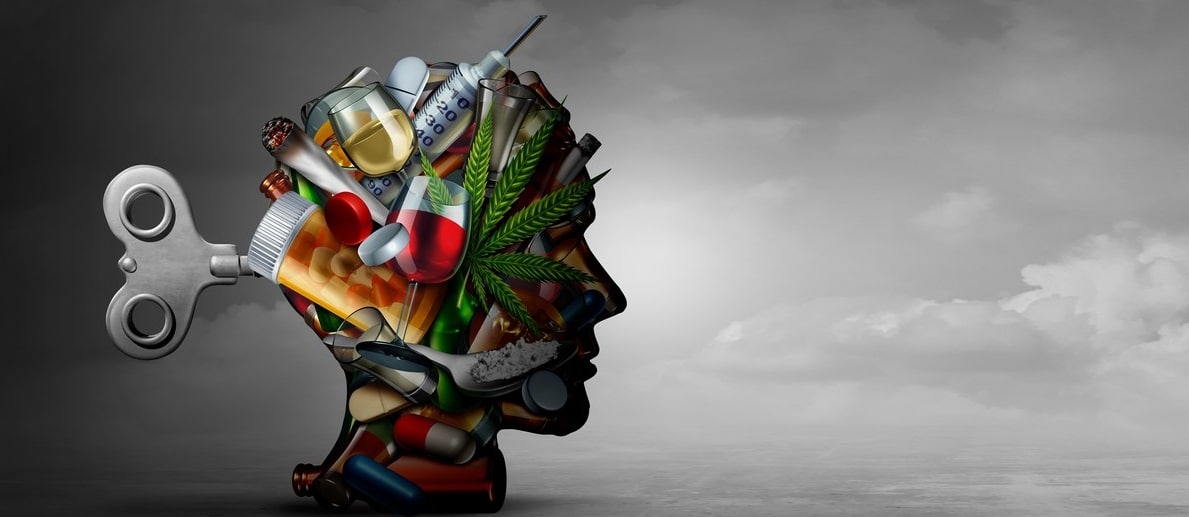
When you stop using hallucinogens, your brain will try to adjust to the absence of the drug by changing itself. Your brain will start to produce its own versions of the chemicals that the drug used to make.
As a result, you’ll start to experience withdrawal symptoms, which should subside within 24 hours. If you continue to use hallucinogens, though, your symptoms may become more severe. Hallucinogens Addiction common withdrawal symptoms include:

The psychological effects of a hallucinogens addiction include:
The behavioural effects of a hallucinogenic addiction include:
These are all signs that you may be suffering from an addiction to hallucinogens. If this describes you, then you need to seek professional help as soon as possible. Addiction will only get worse if left untreated.
Studies show that children born into families where both parents use hallucinogens are more likely to become addicted to hallucinogens themselves. Children whose mothers use hallucinogens during pregnancy are also more likely to become addicted.
Your genes have a lot to do with whether or not you will develop a habit of taking hallucinogens. Some people inherit certain gene variations that make them more susceptible to developing a habit of taking hallucinogens.
Environmental factors such as social pressure can influence a hallucinogenic addiction.
Friends and family members who use hallucinogens can influence a person’s decision to use hallucinogens. For example, friends who use hallucinogens may encourage you to try it yourself.
You might think that this is harmless advice, but it could actually put you at risk of becoming addicted to them.
Some people think that if they live in certain places, such as cities, they will have a higher chance of becoming addicted to hallucinogens. But there isn’t any evidence to support this idea.
Hallucinogen Addiction is a serious problem that requires immediate attention. Call us on 0800 999 1083 to discuss treatment options.
Hallucinogens can produce a range of effects that vary in terms of intensity and duration. These drugs affect how people think, including their perceptions of reality and the self.
Common side effects include:
Because some hallucinogens are not illegal narcotics, some people believe that pursuing a “legal high” is safe. The fact that hallucinogens have a reputation for not being “addiction-prone” adds to the appeal of trying them. This, however, isn’t always the case.
Everyone should be aware of the risks associated with using hallucinogens. Addiction to hallucinogens can have life-altering consequences for the user and their families.
Someone who has never used hallucinogens before may be completely unprepared for the intense hallucinations and alterations in perception that can occur as a result of its use.
This can cause a great deal of stress, anxiety, and panic. Several people have died as a consequence of an accident or bad judgement when using hallucinogens for the first time.
When hallucinogens are used, the majority of the body’s organs (heart, liver, kidney, brain, and lungs) are all prone to injury.
Another possible side effect of long-term Hallucinogen abuse is HPPD. Hallucinogen persisting perception disorder involves the recurrences of experiences associated with using the drug including visual disturbances and hallucinations. Such flashbacks can occur suddenly with no warning and may occur more than a year following drug use.
Hallucinogen abuse has also been linked to psychotic episodes in a number of individuals. Symptoms include mood changes, paranoia, disorganised thinking, and visual disturbances. Psychosis has been identified as a sign of withdrawal from numerous hallucinogens, and long-term usage has been shown to dramatically increase the chance of psychosis. Hallucinogens should not be consumed by anyone suffering from psychosis or other mental illness. Persistent psychosis may occur in some cases.
Hallucinogen Addiction is a serious problem that requires immediate attention. Call us on 0800 999 1083 to discuss treatment options.
A hallucinogen overdose occurs when someone takes more of a drug than what their body can process. When this happens, the person may need immediate medical attention.
Someone who is overdosing on hallucinogens could experience any one of the following symptoms:
If you experience any of these symptoms, please call 999 immediately.

After taking hallucinogens, some people may develop suicidal thoughts. People who abuse hallucinogens are at an increased risk of committing suicide.
There are several possible explanations:
Hallucinogen Addiction is a serious problem but there is help available. If you’re thinking of harming yourself, call 0800 999 1083 right away.
Don’t go through the process of recovery alone. Treatment providers can answer your questions. Get in touch with one today.
Call 0800 999 1083 today!
People who use hallucinogens often have co-occurring psychiatric conditions such as depression, anxiety, PTSD, OCD, eating disorders, among others.
It’s crucial to remember that individuals who use hallucinogenic substances can become addicted to them and develop a mental illness as a result of their abuse.
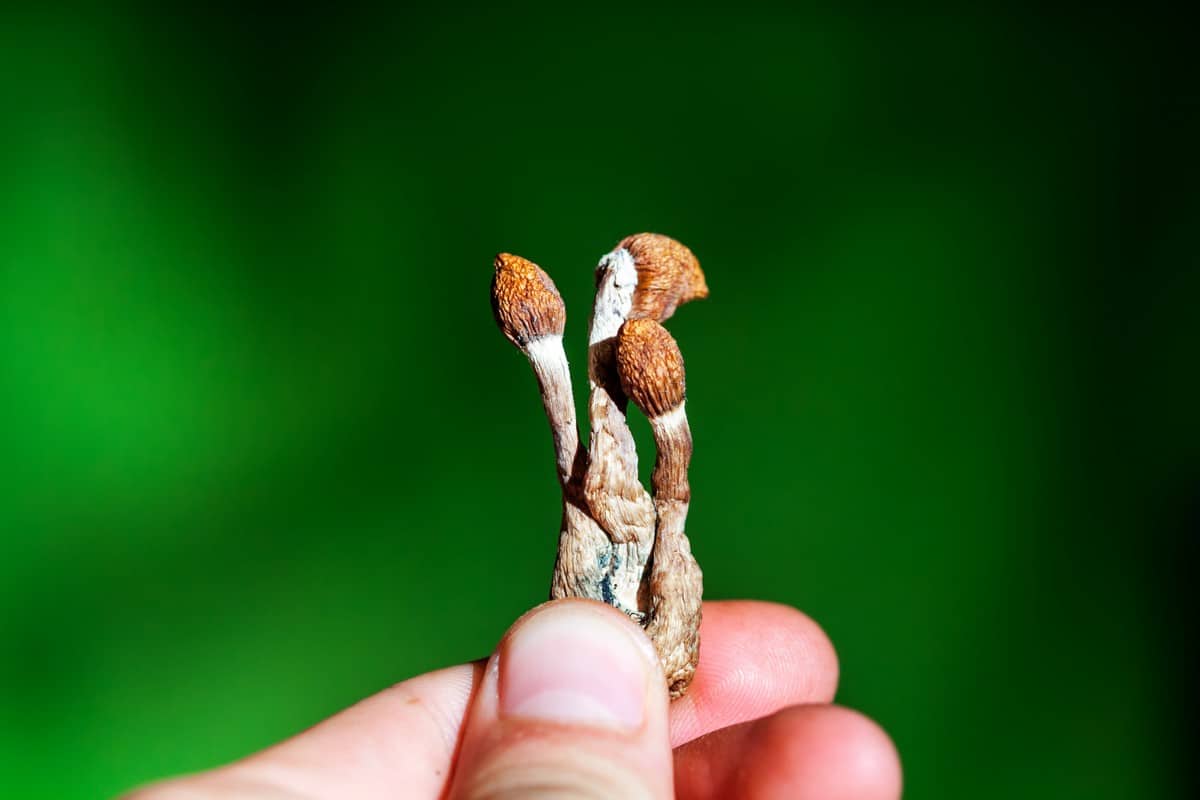
If you’re suffering from a mental illness, you should seek help from a doctor. A psychiatrist will be able to diagnose your condition and prescribe medication. Psychiatrists are trained medical doctors who specialise in treating mental illnesses. They work closely with psychologists and other mental health professionals.

Sometimes people who use hallucinogenics develop a dual diagnosis. This means that someone has both a substance use problem and a mental health problem. In this case, the person needs treatment for both problems.
Drugs like LSD, mushrooms, mescaline, peyote, psilocybin, DMT and ayahuasca can trigger symptoms of mental illness. When someone already has a mental illness, using hallucinogens can make it even worse.
Many people turn to hallucinogens because they want to cope with difficult situations. They might use hallucinogens to deal with stressful events. Or, they might use hallucinogens as a form of self-medication. They might use them to reduce pain, treat insomnia, relieve anxiety, or improve mood.
Using hallucinogens as a coping strategy doesn’t mean that you have a mental illness, but shows that you have a problem dealing with certain kinds of feelings.
You may benefit from talking to a counsellor about how you feel. That way, you’ll learn more ways to manage your feelings and you’ll also be able to talk to someone who understands what you’re going through.
Hallucinogen Addiction is a serious problem that requires immediate attention. Call us on 0800 999 1083 to discuss treatment options.
Teenagers who use hallucinogens usually do so recreationally. They just enjoy experimenting with different types of drugs, frequently at parties.
Some teens experiment with hallucinogens to see what kind of effect they have. Others try hallucinogens to explore new ideas.
Some may use hallucinogens to relax while other teens use hallucinogens to enhance a sexual experience, or during spiritual ceremonies.
Teenagers who use psychedelics often become addicted to them. Because of the evolving nature of the teenage mind, teens are more prone to psychological changes brought on by hallucinogen use and addiction. Hallucinogen addiction is regarded as more harmful for young individuals than for older adults.
The best way to deal with hallucinogen addiction is to get professional treatment advice.
If you have a hallucinogen addiction, your mental health and even your life are at risk, and you will need expert assistance to overcome your addiction and get your life back on track.
It may seem to be a long and difficult journey back from addiction to a happy and healthy life, but it is possible, and the sooner you get help, the better.
Hallucinogen Addiction is a serious problem that requires immediate attention. Call us on 0800 999 1083 to discuss treatment options.
There are many different types of treatment available for people who suffer from hallucinogenic addiction.
If you’re struggling with hallucinogen addiction, you’ll probably benefit from individual counselling, group therapy, family counselling, medication management, and detoxification.
Any addiction recovery programme begins with detoxification. It involves getting drugs and other chemicals out of your system. Before you start detoxing, you will be assessed by a doctor.
Your doctor will assess if you are physically and mentally capable of detoxing.
If you are experiencing hallucinogen withdrawal symptoms after stopping their use, your doctor may prescribe medicine to help you feel better.
You’ll likely spend two to four days in an inpatient treatment facility in order to detox. Throughout this procedure, your physicians will keep a careful eye on you. They will make certain that you do not have any major complications.
There are medications that have been proven effective for help treating hallucinogen addiction, such as:
These medications work by blocking certain brain receptors, reducing the euphoric feeling caused by the drug. When taken as part of a program of recovery, these medications can help prevent relapses. For example, they can keep people from getting high again after they have stopped using hallucinogens.
The most important thing is to seek medical advice before starting any kind of treatment. Talk to your doctor about what options are best for you. They can decide whether these medications are right for you.

Treatment programs vary depending on the type of treatment centre you choose, the type of drug used, how long you have been abusing substances, among other factors.
Individualised treatment plans are created by a team of professionals who work together to help you overcome your substance abuse problems. They include psychiatrists, psychologists, physicians, nurses, social workers, spiritual advisors, case managers, and others. It should address all aspects of your addiction, including your physical, mental, emotional, and spiritual needs.
Inpatient treatment offers 24/7 access to medical staff, counsellors, nurses, doctors, therapists, social workers, chaplains, etc. The cost of an inpatient program is usually higher than that of an outpatient program. However, if you need more intensive treatment, it may be worth considering.
Outpatient treatment is less expensive and allows you to continue working and living at home. Most outpatient facilities offer group sessions, individual counselling, and 12-step meetings. Some also provide day or evening activities such as sports, art, music, yoga, meditation, exercise, etc.
Outpatient treatment may be beneficial for you if you’re ready to reintegrate into society without the use of drugs. But if you are still feeling intense cravings for drugs, then inpatient treatment may be better suited.
There are two main types of therapy available for people with a substance use disorder:
If you have just been diagnosed with a hallucinogen addiction, then individual therapy will likely be the best option for you. This type of therapy involves one-on-one contact between you and your therapist. You will learn about the nature of your addiction and what led you into using hallucinogens.
Group therapy consists of small groups of patients who meet regularly with their counsellors. Here, you can discuss issues related to your Cognitive-Behavioural Therapy The goal of cognitive-behavioural therapy is to alter unfavourable thought patterns and behaviours. CBT teaches patients to learn to recognise and replace unhelpful ideas with more positive ones. CBT, for example, will train you to think positively instead of focusing on previous failures. Another way to treat a hallucination addiction is through counselling. Counselling can help you in gaining a better understanding of why you began abusing hallucinogens and how to address any underlying issues that contributed to your addiction. Counsellors can also help with coping skills and methods to avoid relapsing into substance misuse. Aftercare is a strategy for assisting someone in their early recovery, by preventing relapse and helping them achieve their life goals. An aftercare plan consists of activities, treatments, and resources to assist a recovering addict in dealing with triggers, stress, and cravings that may emerge after treatment. People can discuss their experiences with hallucinogens and other narcotics in support groups. There are several support groups for people recovering from hallucinogen addiction, but there are also general support groups for anybody struggling with drug abuse problems. Twelve-step programmes offer a safe environment for people to share their experiences and learn from one another. Triggers, cravings, relapse prevention, and coping skills are among the topics discussed by group participants. These organisations gather on a regular basis to address their issues and make amends for previous errors. Hallucinogen Addiction is a serious problem that requires immediate attention. Call us on 0800 999 1083 to discuss treatment options. Addiction is a chronic disease that requires lifelong management. Relapses occur when addicts return to their old behavioural patterns. If you want to avoid relapsing, you must take steps to prevent it. To do so, you must understand what caused your addiction. Then, you must develop strategies to deal with those triggers before they become overwhelming. This is called relapse prevention. Relapse prevention includes: Hallucinogen Addiction is a serious problem that requires immediate attention. Call us on 0800 999 1083 to discuss treatment options.Counselling
After Care And Recovery
Support Groups
12 Step Programs
Get Help Today?
Hallucinogens Addiction: Living with and Managing It
Get Help Today?
Statistics on Hallucinogens Abuse and Addiction

BACP accredited psychotherapist with 16 years experience working in mental health specialising in psychodynamic person-centred therapies treating those with a range of mental health disorders including anxiety, depression, OCD and Addiction.

Fill in your details and we’ll send you a message via SMS.


No matter where you live, there are drug and alcohol rehab options for you to discover. Treatment providers are waiting to answer your questions. Get started today.

Ever felt that gnawing ache or burning sensation in your gut after a night of drinks? You’re not alone. Stomach pain after drinking is a common complaint, and there are a few reasons why it might happen. Let’s delve into the science behind the discomfort and explore ways to soothe your stomach. The Irritating Truth: … Continued

Cocaine, a stimulant known for its short-lived burst of energy and euphoria, hides a dark side. Behind the initial high lies a dangerous potential for overdose, with severe health consequences and even death. This article delves into the world of cocaine overdose, equipping you with the knowledge to recognize the signs, understand the dangers, and … Continued

Adult smoking habits in the UK refer to how often and in what ways people aged 18 and above use tobacco. This includes everything from smoking cigarettes every day to occasionally lighting up, as well as using other tobacco products. Understanding these habits is important for several reasons: Public Health: Smoking causes many diseases that … Continued

Addiction in the UK is a complex issue that is connected to various aspects of society such as healthcare and law enforcement. It affects people from all backgrounds and has negative impacts on families, communities, and the entire nation. Understanding addiction involves not only looking at the uncontrollable use of substances and repetitive behaviors but … Continued

Don’t go through the process of recovery alone. Treatment providers can answer your questions. Get in touch with one today.
Call 0800 999 1083 today!





